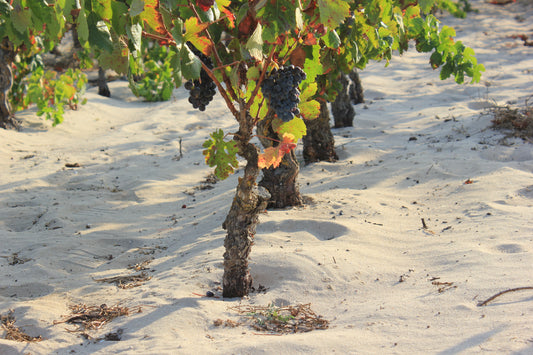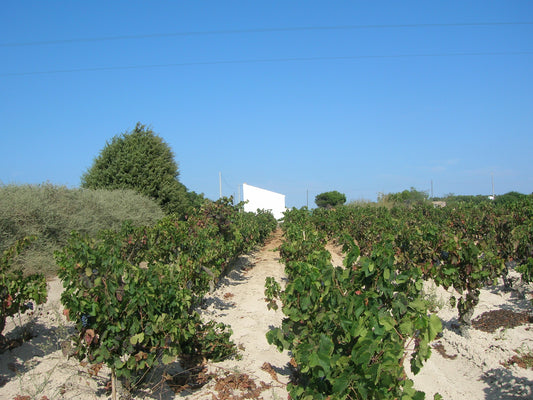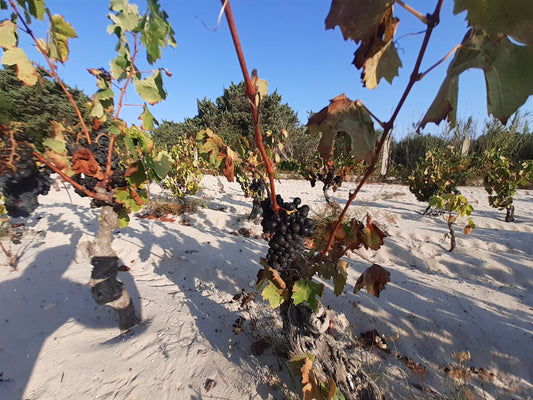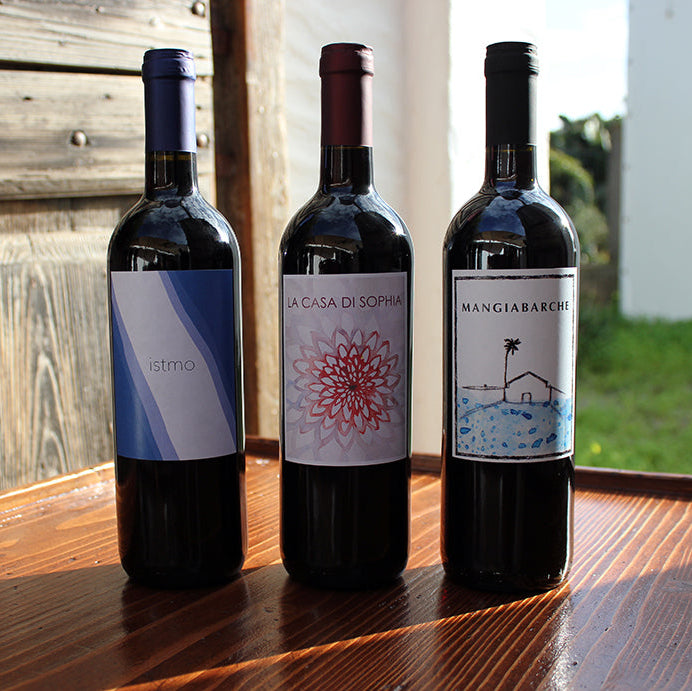In 2011, La Casa di Sophia started her programe of organic viticulture. In the last years, the vineyards of La Casa di Sophia have grown in both fertility and production thanks to the organic viticulture program; a sure indication, that the importance of cultivating using methods that respect the environment is pivotal.
La Casa di Sophia wishes to divulge its organic viticulture program in an effort to debunk the myths and tales that insects and diseases cannot be killed with organic substances.

Our farm utilizes the following products: sulphur in powder en wet table sulphur (to contain powdery mildew and dead-arm infection); copper (within the limits allowed by law, to contain downy mildew); Bacillus Thuringiensis (a bacteria) is used to kill the grapevine moth. This is done in two steps. First we set traps with pheromones to attract the moth. Once a week we count the numbers; once they reach reproduction numbers the bacteria is sprayed on the plants to prevent the moth from damaging the grapes; buckets of water and sugar are used to attract the Tropinota Hirta; the essential oil from the sweet orange is used in the fight against the leafhopper; last but not least, we can use a nematode called Heterorhabditis Bacteriophora to fight a local phytophagous insect called Triodonta raimundii (only present in the isle of Sant’Antioco & Porto Pino). This is the result of the research conducted by agronomist Emanuele Gosamo upon personal request.
Other techniques we use are: we fertilize using compost from organic certified farms and by manuring with organic green legumes. Lastly, we use the ancient practice of planting offshoots to replace missing vines. The offshoots are identical to the mother vine.
La Casa di Sophia publishes the research online on the Triodonta Raimundii in the hope that more vine growers will give up the usage of harmful pesticides that are dangerous to both the vines and the environment. Investing in research and selecting for a targeted environmentally friendly fight against insects, will prove successful as the harvest will provide healthier and more abundant grapes.

La Casa di Sophia participated in the research project “SDULCIS_ Repellenti edibili nella strategia push & pull a difesa delle colture agrarie di pregio” conducted by the Istituto CNR di Chimica Biomolecolare of Sassari and participated in the rearch project “Progetto cluster top-down GA-VINO_Metodi e tecnologie per una gestione innovativa e sostenibile della risorsa idrica nel vigneto”, conducted by CNR IBE (Istituto per la BioEconomia).
The following article was published on the 27th of December 2023, regarding La Casa di Sophia: The environmental role of small organic wineries: the case study of a multi‑year assessment of a local Italian red wine. https://rdcu.be/duCvF











